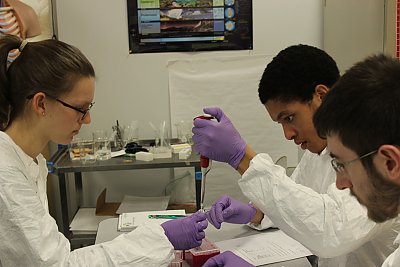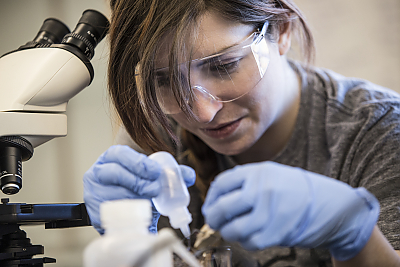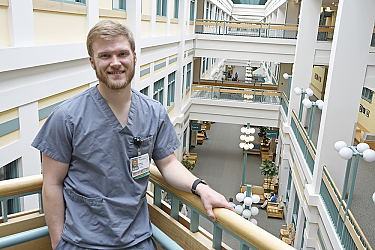The rigor of the scientific method in the context of Landmark College’s innovative teaching methods
Hands-on scientific inquiry is one of the most exciting and meaningful ways to learn, and that is particularly true for students who learn differently.
The principles of scientific investigation form the foundation of the Associate of Science in Biology—and, as with all of our other academic programs, the Biology program is integrated with the College’s proven program to develop effective learning strategies and assistive technology skills.
The program is designed to promote scientific literacy, stimulate intellectual curiosity, and provide a solid foundation in biological sciences. It fosters an understanding of the role and relevance of biology in the modern world, encouraging students to critically evaluate concepts and ideas using scientific evidence.




